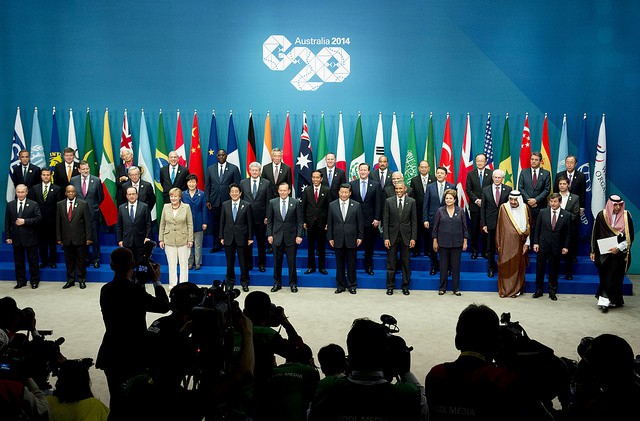G20 announces $300 million of loans, debt relief and grants from IMF, but details of how to do so are being debated over coming weeks
At the G20 summit on 23 November, the leaders of the 20 countries welcomed
“the IMF’s initiative to make available a further $300 million to stem the Ebola outbreak and ease pressures on Guinea, Liberia and Sierra Leone, through a combination of concessional loans, debt relief, and grants.”
Contrary to the way in which this is stated, nothing has yet been proposed or agreed by the IMF. An announcement is expected in the next few weeks by the IMF Board on how the $300 million will be delivered. Ahead of the G20 summit the US briefed that $100 million should be provided as debt relief, though neither this figure nor how much will be provided as loans, or grants, has yet been agreed.

Collectively, Guinea, Liberia and Sierra Leone owe $464 million to the IMF, out of a total debt of $3,600 million. In total, the three countries are spending $100 million in debt payments in 2014, rising to $130 million in 2015. Out of this $14 million is to the IMF in 2014, and $21 million in 2015 . The IMF estimates that the governments of the three countries will be over $600 million worse off over the next two years because of the Ebola outbreak.
Since the Ebola crisis began, the IMF has disbursed $128 million of new loans to the countries (which is included in the debt figure above of $464 million). Any loans which make up the meeting of the $300 million pledge will be additional to this.
The US has called for the debt relief to be paid for out of the post-Catastrophe Debt Relief Trust within the IMF. This Trust was setup following the Haiti earthquake in 2010. It allows for debt relief in low income countries if a disaster:
• Affects more than one-third of the population of the country, and:
• Destroys more than one-quarter of a country’s productive capacity, or causes damage exceeding 100 per cent of GDP
It is unclear in the case of Ebola if the second of these has been met, so it may be that a new criterion needs to be adopted by the IMF Board.
Upon meeting these criteria, a country has all debt payments coming due to the IMF over the next two years cancelled. In ‘exceptional’ circumstances further cancellation of debt into the future can be allowed. If all the three countries get is two years of debt service relief, this will mean a total amount of debt and interest cancelled of $47 million.
The post-Catastrophe Debt Relief Trust currently has $150 million within it. The IMF has made $8.8 billion of profit from its lending and investments over the last three years, which have been added to the general reserves of the institution.